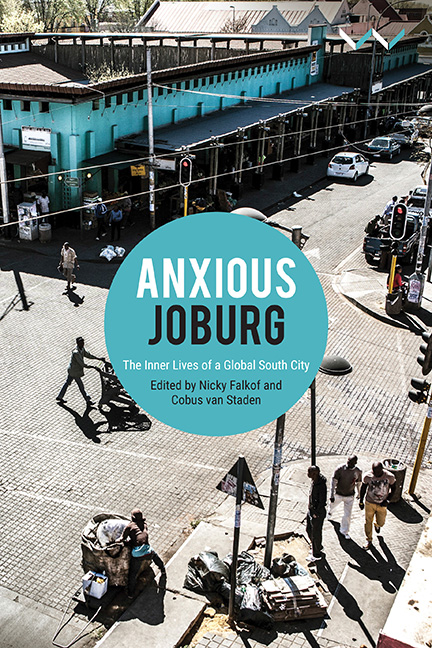Book contents
12 - Inner-City Anxieties: Fear of Crime, Getting by and Disconnected Urban Lives
Published online by Cambridge University Press: 16 June 2021
Summary
Fear of crime, real and imagined, is a defining feature of contemporary life in Johannesburg. In the inner city, where crime remains prevalent, fear plays a decisive role in shaping residents’ experiences of the area, the ways they move through it, engage with public spaces and with each other. These fears contribute to shaping and restricting their urban subjectivities and ways of living the city. At the same time, broader structural issues are obscured or masked by ‘talk of crime’ (Caldeira 2000). The ways in which residents articulate fears and concerns about crime also express their positionings within the inner city's social order. In many cases, residents fixate on issues of crime in the absence of long-term attachments to the area or channels for expressing collective identities and aspirations. Intense regulation inside residential buildings shuts down potential avenues for engagement and limits residents‘ sense of agency. Furthermore, precarious and stressful living conditions and the pressures of everyday life propel residents to disengage and eschew forms of identification, both with each other and with the spaces in which they live. In place of attachments to the area and their neighbours, residents fall back on discourses about crime and longings for physical security when articulating their aspirations. It therefore becomes apparent that crime limits or restricts people's experiences of contemporary Johannesburg in very real ways, but that anxieties about crime are also symptomatic of broader societal inequalities and forms of stratification, and obscure more troubling issues around belonging and ownership of urban space.
This chapter draws on in-depth, semi-structured interviews with 57 residents living in social or affordable housing developments in inner-city Johannesburg. The interviews were conducted by the author between 2012 and 2013 and formed part of a larger study of the urban regeneration process in the area. Interviews were also conducted with government officials, neighbourhood organisers, housing providers, private security personnel and employees of agencies providing finance for housing development in the inner city. Social housing is rental housing which is partially state-subsidised and provided by non-profit social housing institutions (SHIs); households earning between R3500 and R7000 per month qualify for access. Government subsidises social housing primarily through two grant schemes – the Capital Restructuring Grant and Institutional Subsidy. These cover the initial costs of developing social housing, including purchasing land or buildings and carrying out construction or renovation.
- Type
- Chapter
- Information
- Anxious JoburgThe Inner Lives of a Global South City, pp. 241 - 264Publisher: Wits University PressPrint publication year: 2020



